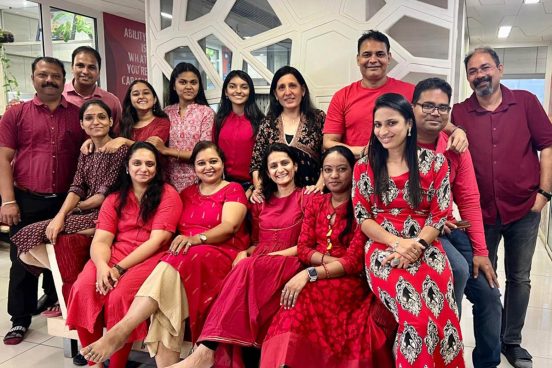Duke MMS Student Blog

How a Case Competition Prepared Students for Consulting Careers
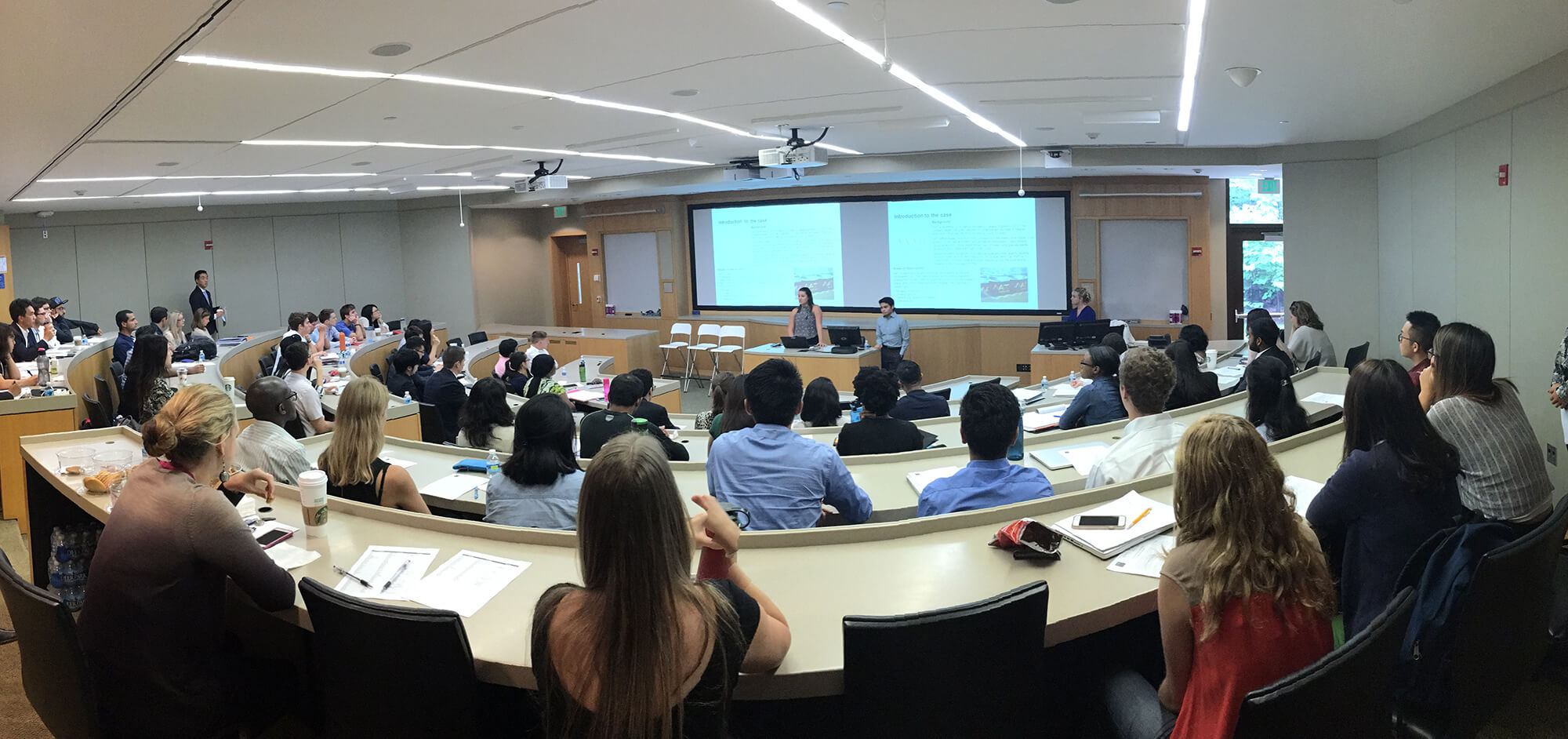
Management is an art as well as science. That is exactly why Fuqua provides its students a plethora of opportunities to practice what is taught in class. One such opportunity is the MMS Accenture Case Competition. This annual consulting competition, challenges MMS students to collaborate as a team, demonstrate structured and creative thinking, and present an innovative solution to the problem of a real-world client.
Fifteen teams comprised of 65 MMS students—including myself—participated, and we all learned something from the experience. For Ryan Kell, one of my teammates in the competition, it prepared him for his future career. He told me he really wanted people to understand the fun we had in the competition and its value, so I asked him about his experience.
When did you learn about the competition and what was your first reaction?
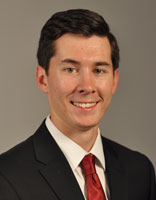
I first learned about the competition through the MMS Career Management Center via email, but initially I didn’t think it was something that I wanted to take part in. There was so much excitement about it from my classmates, however, that I decided to attend the information session held by Accenture employees. I was impressed with their presentation on how the case competition would not only assist our own development, but how we would be providing real solutions for a client. It was once I discovered the practical applications of this competition that I made the decision to sign up.
How did you form the team?
Going into the competition I already knew that one member of my designated MMS study team, Skyler, was interested in the competition. Since we still needed two to three other members, we started looking around for others who were interested. I heard that you were interested but without a team, so you became our third member. Skyler’s friend Max was also looking for a group, and so she rounded out our four. It was a good group, with a balance between U.S. and international students, which we knew would be important in enabling us to view problems through diverse lenses.
What was the case about?
The client for the case competition was MATI, an energy drink brewed from unique guayusa leaves, based out of Durham, and founded by a Duke graduate. Our task was to lay out a marketing plan moving forward for the brand to grow both in North Carolina and across the country. They particularly wanted a creative strategy that could target energy drink consumers without the need for a large marketing budget. This meant staying away from traditional advertising and thinking outside the box, but through a business school lens.
Can you share the timeline, process and activities you went through to provide a marketing plan for MATI?
In the information session, it was explained to us that all groups involved would get one week to develop a five-slide PowerPoint presentation outlining our research and marketing plan. These would then be sent to MATI representatives, who would choose their four favorites. These final four teams would then have an additional week to develop that PowerPoint into a 10-minute presentation in front of Accenture consultants and MATI marketing personnel. That group would then decide a winner, whose plan would have its important elements adopted by MATI moving forward.
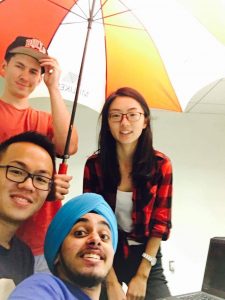
One week was not much time to put together a marketing plan and prepare a presentation, and on top of that, we had to work around a normal class and assignment schedule. This meant long days and late nights trying to gather our research and turn it into creative ideas. While this initially didn’t sound like fun to us, it turned into arguably the best part of the entire experience. It was through these nights that I was able to get closest to my teammates and to develop strong relationships only a month or two into the MMS program. This environment enabled us to work well together. We built a comfort level that allowed a free exchange of ideas and helped us to put together five slides that we felt laid out a creative and implementable marketing plan for MATI. Apparently, they felt so as well, and we were one of the four teams chosen as finalists.
We quickly realized that although we felt the first week of the case competition had been a lot of work, the second would require even more time and effort. We had our ideas, but we needed data to back up the strategy that we would be presenting. This meant hours and hours of secondary research, which we paired with a survey organized by our group to find necessary data from the most important market—young energy drink consumers. Once again, all this work together was also interspersed with jokes and stories, showing that this was more than just a project. Through all of it, we learned an important lesson, as a group, about how building relationships and friendships only helped to create better end results.
After organizing all our research to properly support the conclusions of our marketing plan, it was time to present. Due to the large undertaking of our research gathering, we only had one night to spend practicing and organizing what we would do on stage the next day. While this doesn’t seem like much time, it turned out to be all that we needed. Throughout the two weeks of working, we had all developed enough of an understanding of MATI, energy drink consumers and their demographic markets that we all could have given that presentation without practice. Through a short but important practice, we were able to create a more professional image for our marketing plan. I am very proud of how it all came together and glad to say that our presentation turned out to be a success.
You didn’t win the competition, so what do you think went wrong?
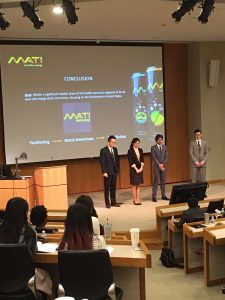
While I believe that overall we were successful in both constructing and presenting our marketing plan to MATI, there were two main issues we came across. First, it was difficult to find the right data to support our conclusions. We did not find as much meaningful secondary data as we had thought we would, and the one to two weeks was not enough to generate the primary data we needed. Our conclusions were not as strong as they could have been if we had better data, and it showed. Second, we struggled a little with the creative element of our plan. We approached it practically and with a business mind, but our end result turned out to be slightly narrow-minded. While the MATI representatives still said that they enjoyed our recommendations and the realistic elements they had, I believe that we would have stood out more and made a greater impact had we been more creative.
Do you think that diversity of backgrounds and experiences in your team helped you in solving the case?
Absolutely! This is what brought our team together and helped our presentation to stand out. Although we were only four people, we all came from different cultural, social and educational backgrounds. For example, our team included people from three different countries, all with different majors, and all pursuing various careers. This allowed us to approach problems from different perspectives, and to offer solutions based on our different experiences and bases of knowledge. At the same time, there was no conflict in our group with one person or another looking to pursue their ideas solely. This allowed us to build a comprehensive marketing plan where we not only created a great presentation for Accenture and MATI, but also learned a lot about leadership, teamwork, and the overall business case process.
Were you provided with any mentorship?
Once the case competition had been narrowed down to the four finalists, Accenture provided each team with a current consultant who would look over our marketing plans and help us with any issues we were having. While this was meant to help us create a presentation that was professional and represented Fuqua well, it also gave us incredible access to a mentor. In fact, most of our conversations with our Accenture mentor weren’t directly about our project, but about the process of consulting. We learned about how to interact with clients, how to balance their needs with our own, and many other important lessons that would impact both our presentation to MATI and our future job search.
Do you think this experience will help you in the future?

Definitely. This experience has been and will continue to be an incredibly important experience with an impact on my future. When I got to Fuqua I wasn’t sure what career path I wanted to pursue. I had thought about consulting, marketing, general management, and others, but hadn’t narrowed my career search. The Accenture Case Competition was what made me choose to consult and for many important reasons. Chief among these was that I truly enjoyed the competition. The work that was done was extremely interesting, the process was engaging, I developed new skills, and I was able to work with an incredible group of people. Through my interactions with Accenture employees throughout the two weeks on the project, I learned so much about the consulting industry and built the beginning of a meaningful network. Add all the skills that I developed with the hands-on aspects of this competition, and the Accenture Case Competition gave me the foundation for my consulting career search.

